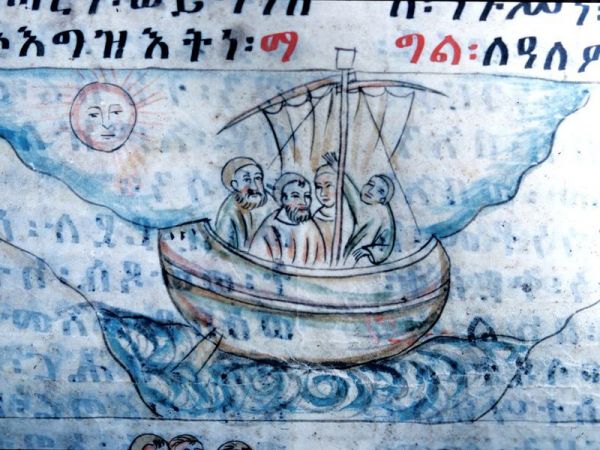
Our understanding of history is shaped by our perspective. Our world history classes are often limited to the history of Western civilization, in which the narrative is centered in Europe. But there were plenty of other civilizations with their own perspectives. When Verena Krebs researched the relationship between Europe and Ethiopia in the medieval era, she found a perspective that changed the entire focus of the book she was writing. Ethiopia was an early adopter of Christianity, and by the 15th century had formed a Christian empire in East Africa.
The Solomonic kings of Ethiopia, in Krebs’ retelling, forged trans-regional connections. They “discovered” the kingdoms of late medieval Europe, not the other way around. It was the Africans who, in the early-15th century, sent ambassadors out into strange and distant lands. They sought curiosities and sacred relics from foreign leaders that could serve as symbols of prestige and greatness. Their emissaries descended onto a territory that they saw as more or less a uniform “other,” even if locals knew it to be a diverse land of many peoples. At the beginning of the so-called Age of Exploration, a narrative that paints European rulers as heroes for sending out their ships to foreign lands, Krebs has found evidence that the kings of Ethiopia were sponsoring their own missions of diplomacy, faith and commerce.
Just as Europe saw Africa as an exotic monolith to be explored and exploited, the kings of Ethiopia regarded Europe as an interesting but less-civilized region of relatively new Christians and possible trading partners. Read about how Krebs' book flips the script on medieval relations between continents at Smithsonian.





